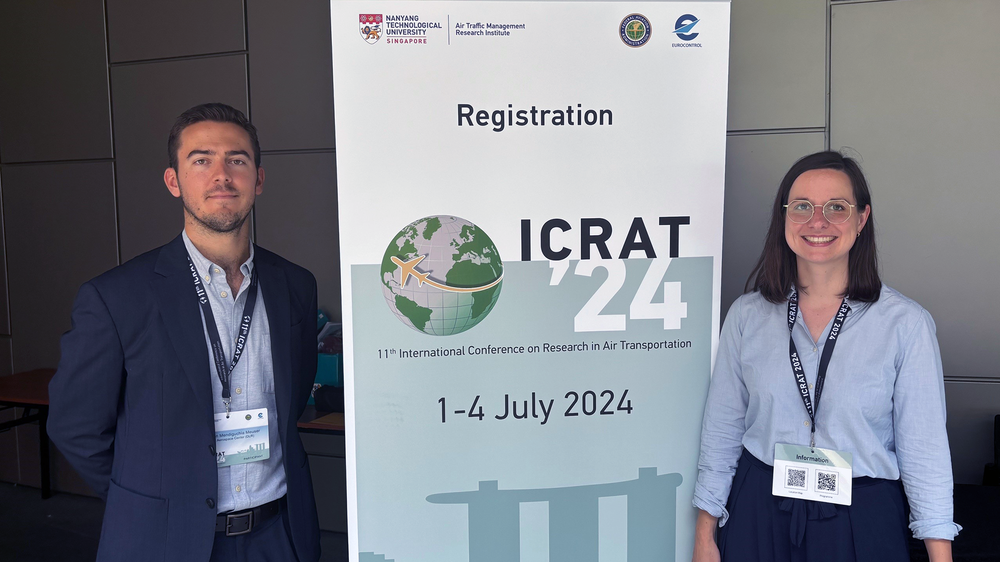Climate-optimised flight planning: DLR Institute of Air Transport at ICRAT 2024

- Conducting simulations demonstrating how adjusting airspace structure supports climate-optimised flight planning
- Comparing operational measures to reduce CO2 and non-CO2 effects of air transport
- Supporting young researchers by showcasing their work in an international context
ICRAT 2024 in Singapore
From 1 to 4 July 2024, the International Conference on Research in Air Transportation (ICRAT) took place in Singapore. ICRAT is a well-established event with global reach, alternating annually with the Air Traffic Management Research and Development Seminar in the USA and Europe, organised by EUROCONTROL and the US Federal Aviation Administration (FAA). The conference provides a significant platform for early-career researchers in air transport to present their work, expand their networks, and discuss current challenges and solutions in aviation. This year, the DLR Institute of Air Transport presented the current status of two doctoral theses exploring practical solutions to achieve climate goals in air transport.
Measures to Reduce the Climate Impact
Achieving the climate goals requires comprehensive technical, operational, and regulatory measures. Technical approaches such as innovative propulsion technologies or alternative fuels appear promising to reduce the climate impact of aviation. Concurrently, operational measures can be implemented in the current fleet and contribute to reducing CO2 and non-CO2 effects in the foreseeable future.

Climate-Optimised Flight Planning1
One of the presented works investigates how the European airspace structure could be adjusted to facilitate flight planning aimed at climate optimisation. The study analyses how different trajectories impact the climate and proposes measures in flight planning to reduce non-CO2 effects (e.g., ozone production or contrails). Using special algorithmic approaches, optimised trajectories are designed that are adapted to the respective infrastructural conditions and also aim to minimise the climate impact.
Study Focus:
- Analysis of the climate impact of trajectories in European airspace
- Calculation of climate-optimised trajectories
- Evaluation of measures based on atmospheric data
Comparison of Operational Measures2
The second work compares various operational measures that can contribute to reducing the climate impact of air transport. The study evaluates the effectiveness and efficiency of these measures using detailed trajectory calculation and climate impact simulation. It establishes a comparative methodology to select the most promising approaches, aiming to provide well-founded recommendations for implementing future climate protection strategies.
Study Focus:
- Comparison of operational climate protection measures in air transport
- Evaluation of effectiveness and efficiency
- Aim to derive recommendations for the most effective measures
1 Maximilian Mendiguchía Meuser (DLR Institute of Air Transport), Prof. Dr. Volker Gollnick (Institute of Air Transportation Systems, Hamburg University of Technology)
2 Zarah Lea Zengerling (DLR Institute of Air Transport), Prof. Dr. Volker Gollnick (Institute of Air Transportation Systems, Hamburg University of Technology)
